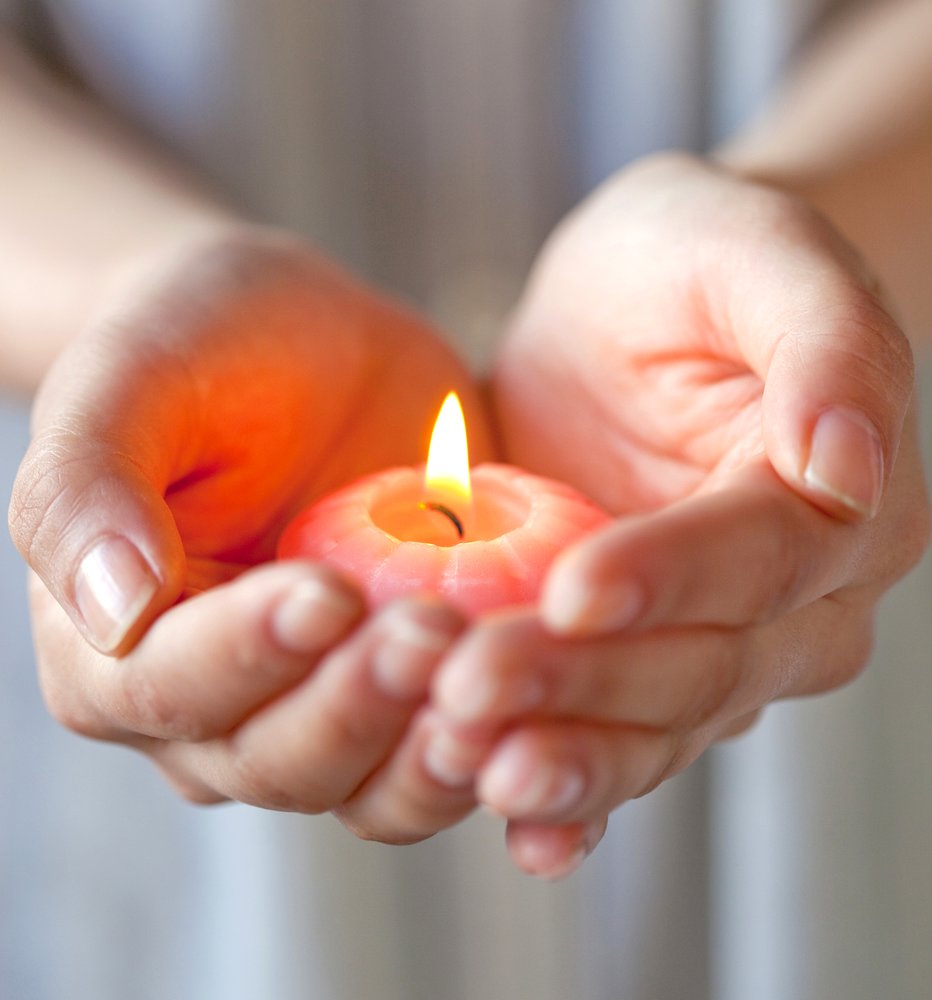Survivor Aftercare
No one can fix your grief or take it away, you must work through it. Initially you may have feelings of shock, numbness or disbelief that the loss has occurred. Whether the death was anticipated or not, you may feel emotionally overwhelmed and experience physical reactions to it. Some of these feelings may last seconds, days or weeks, similar to the body's response to shock. It’s a defense mechanism that can give you time to gradually absorb and accept the reality of your loss.
Some Responses to Grief:
Social:
— distancing from others
— inability to reach out
— lack of interest in daily affairs of others
— dependency on family or friends
— unrealistic expectations of self or others
— rushing into another intimate relationship
— poor judgment
Physiological:
— tightness in chest, palpitations
— shortness of breath, choking
— diarrhea, constipation, vomiting
— crying, sighing
— no energy, weakness in body, feeling empty, rigidity
— restlessness, aimless activity
— loss of appetite, no taste to food or drink
— insomnia or sleeping too much
Thoughts:
— confusion, sense of unreality
— distortion of time
— poor concentration, forgetfulness
— general denial or disbelief of the loss
— daydreaming
— preoccupation with the deceased
Emotional:
— indifference to activities of daily living
— numbness, flat expression
— personality explosion or withdrawal
— need to review circumstances of death
Spiritual:
— blaming God or life for the death
— lack of meaning in life
— may wish to die and join the deceased
— lack of direction, no sense of future
What Helps?
- talking about the person and the death
- grief support groups, talking to strangers is sometimes easier
- knowing that other people experience the same reactions to loss
- feeling you have support in your life, practical and emotional
- not making unnecessary changes in your life

Grief: General
These thoughtful articles provide guidance and direction for anyone touched by grief.
Helping Yourself with Grief
Someone you love has died. You are now faced with the difficult, but important, need to mourn. Mourning is the open expression of your thoughts and feelings regarding the death and the person who died. It is an essential part of healing. The following articles provide many practical suggestions to help you move toward healing in your unique grief journey.
- You Must Say Hello Before You Say Goodbye
- You Must Make Friends with the Darkness Before You Can Enter the Light
- You Must Go Backward Before You Can Go Forward
- Mustering the Courage to Mourn
- Love and Grief: In Communion and Greater Than the Sum of Their Parts
- Will I Befriend My Feelings Or Will I Deny Them
- Will I Grieve or Will I Mourn
- Helping Yourself Heal When Someone Dies
- Helping Yourself Heal When Your Child Dies
- Helping Yourself Heal When Your Spouse Dies
- Helping Yourself Heal When a Parent Dies
- Helping Yourself When a Baby Dies
- Helping Yourself Heal During the Holiday Season
- Helping Dispel 5 Common Myths About Grief
- Helping Yourself Live When You Are Seriously Ill
- Helping Yourself Live When You Are Dying
- Exploring the Uniqueness of Your Suicide Grief
- Healing Your Traumatized Heart: Seeking Safety, Understanding, and Peace Part 1
- Healing Your Traumatized Heart: Seeking Safety, Understanding, and Peace Part 2
- Healing Your Grieving Body: Physical Practices for Mourners
- The Spiritual Path to Healing: An Introduction
- The Spiritual Path to Healing: Mourning Ideas, Part 1
- The Spiritual Path to Healing: Mourning Ideas, Part 2
- The Spiritual Path to Healing: Mourning Ideas, Part 3
- The Spiritual Path to Healing: Mourning Ideas, Part 4
- Dispelling the Misconceptions About Suicide and Grief and Mourning
- The Capacity to Love Requires the Neccesity to Mourn
- Helping Yourself Heal When an Adult Sibling Dies
- Helping Your Family Heal After Stillbirth
- Healing Your Grief About Getting Older
- Embracing the Sadness of Grief
- Helping a Friend or Family Member After a Cancer Diagnosis
- When Your Soulmate Dies
Helping Others with Grief
A friend has experienced the death of someone loved. How can you help? The following articles provide many practical suggestions for helping others with grief:
- Helping a Friend in Grief
- Helping a Man Who is Grieving
- Helping a Friend Who is Dying
- Helping a Friend Who is Seriously Ill
- Helping a Suicide Survivor Heal
- Helping a Homicide Survivor Heal
- Helping a Grandparent Who Is Grieving
- Helping a Grieving Friend in the Workplace
- Helping AIDS Survivors Heal
- Helping SIDS Survivors Heal
- Helping Your Family When a Member is Dying
- Helping Your Family When a Member is Seriously Ill
- Helping Your Family Cope When a Pet Dies
- Helping Your Family Decide if Organ and Tissue Donation is Right for You
- Helping a Friend or Family Member After a Cancer Diagnosis
- Helping Your Family Heal After Miscarriage
- Helping Yourself Heal When Someone You Care About Dies of a Drug Overdose
For and About Grieving Children and Teenagers
Children and teenagers have special needs following the death of a friend or family member. The following articles provide wonderful insight in helping children and teens understand and express their grief.
- Helping Children Cope with Grief
- Helping Teenagers Cope with Grief
- Helping Infants and Toddlers When Someone They Love Dies
- Helping Children with Funerals
- Helping Children Understand Cremation
- Helping a Child Who is Seriously Ill
- Helping a Child Who is Dying
- Helping Grieving Children at School
- Helping Bereaved Siblings Heal
- Finding the Right Words: Guidelines on how to talk to grieving children about death
Funerals, Memorials, Cremation and Related Topics
The days following the death of a loved one can be filled with sadness and confusion. The following articles can help you understand the importance of the rituals surrounding death.
- Helping Your Family Personalize the Funeral
- Helping Create a Meaningful Eulogy
- Ten Freedoms for Creating a Meaningful Funeral
- Why is the Funeral Ritual Important?
For Funeral Directors
Effectively meeting the grief needs of customers in an increasingly impersonal world takes special effort on the part of professionals in the grief industry. The following articles are designed to help funeral directors gauge their own effectiveness and meet the challenges of serving customer needs.
- It's the Experience That Counts: Funeral Home Customer Service for Today's Families
- And We Wonder Why People Question the Need for Funerals...
- Creating Excellence in Customer Service
- The Dirty Dozen of Customer Service
- E-Serving Families: How Your Website Should Help Your Customers
- Listening to (and Satisfying) the Never-Satisfied Customer
For Hospices and Other Caregivers
Caregivers have special needs of their own. The following articles are designed to help caregivers take care of themselves as well as those who are suffering from loss.
- Companioning the Bereaved: An Introduction
- Tenet 1: Companioning Principle
- Tenet 2: Companioning Principle
- The Awesome Power of "Telling The Story": Why I'm Proud to be a Grief Counselor
- Caregiver as Gardener: A Parable
- Companioning vs. Treating: Beyond The Medical Model of Bereavement Caregiving
- Growing Through Grief: The Role of Support Groups
- Responding to Problems in the Support Group Setting
- The Bereavement Caregiver's Self-Care Guidelines









